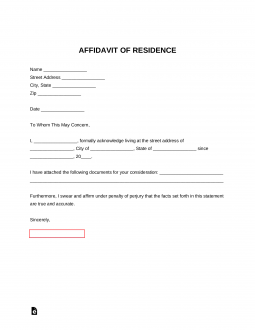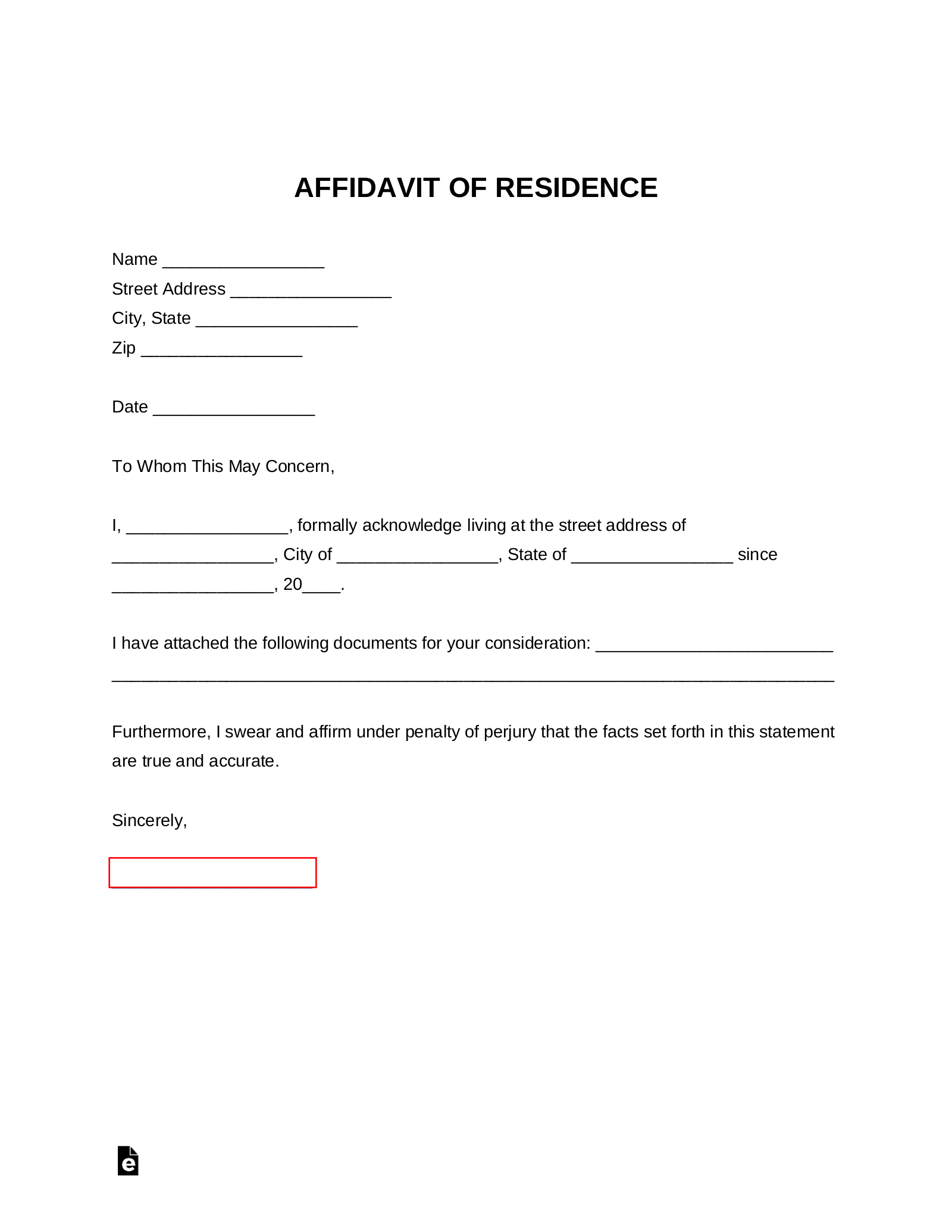Updated August 23, 2023
A proof of residency letter is an acknowledgment or sworn statement that states an individual resides at a specific address. It is commonly required by government agencies and financial institutions to authenticate an individual’s address.
Notarization
It may be required to have a proof of residency letter notarized if there is no supplemental evidence showing a physical address (such as a utility bill, paystub, or driver’s license).
By Type (6)
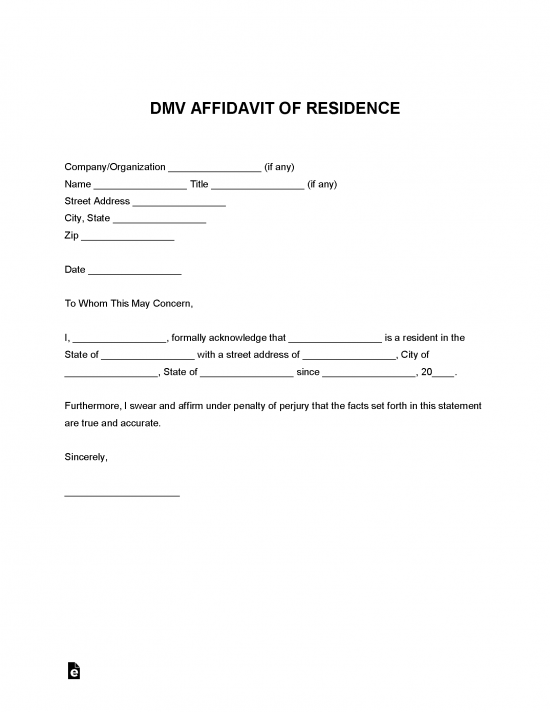 DMV (Dept. of Motor Vehicles) – To prove the applicant for a driver’s license is a resident of the State.
DMV (Dept. of Motor Vehicles) – To prove the applicant for a driver’s license is a resident of the State.
Download: PDF, MS Word, OpenDocument
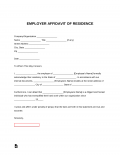 Employer – To verify an individual has been working for a period of time in a specific area or State.
Employer – To verify an individual has been working for a period of time in a specific area or State.
Download: PDF, MS Word, OpenDocument
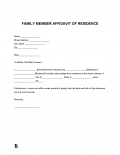 Family Member – Common for parents to claim their child lives in their home.
Family Member – Common for parents to claim their child lives in their home.
Download: PDF, MS Word, Open Document
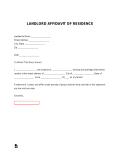 Landlord – From a landlord or roommate and gives testimony that a person has been living on the premises presently and for a certain period.
Landlord – From a landlord or roommate and gives testimony that a person has been living on the premises presently and for a certain period.
Download: PDF, MS Word, OpenDocument
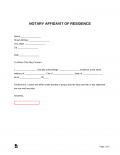 Notary Public – To give a sworn statement, under penalty of perjury, that a person has been living at an address. Must be signed in the presence of a notary public.
Notary Public – To give a sworn statement, under penalty of perjury, that a person has been living at an address. Must be signed in the presence of a notary public.
Download: PDF, MS Word, OpenDocument
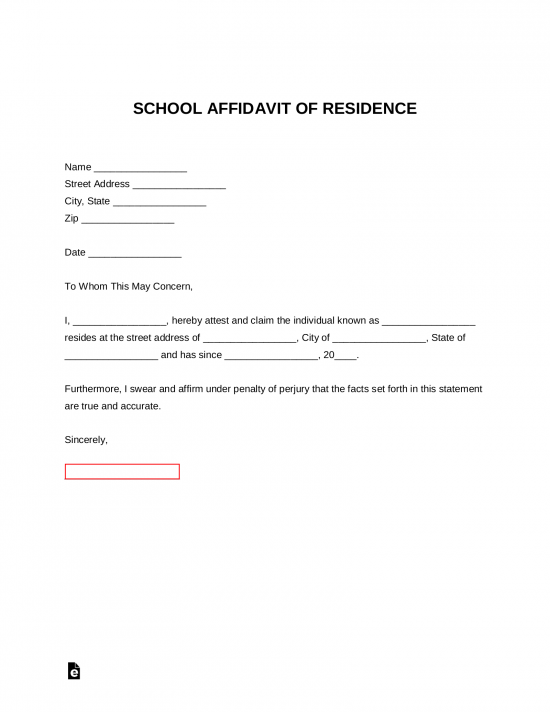 School – To prove to a school that a student has been or is currently living at an address or has been living in a State. May be used for elementary, junior high, or high school and university to apply for in-state tuition.
School – To prove to a school that a student has been or is currently living at an address or has been living in a State. May be used for elementary, junior high, or high school and university to apply for in-state tuition.
Download: PDF, MS Word, OpenDocument
Table of Contents |
What is a Proof of Residency Letter?
A proof of residency letter is an affidavit that is written and signed by someone else that acknowledges a specific person is a resident of the State or a mailing address. This is common when applying for government agencies, insurance programs, or for employees to prove that an individual lives where they claim.
How to Prove Residency (3 steps)
1. Write a Proof of Residency Letter

Whether the resident or someone writing on their behalf is the author, the letter acts as an official testimony of an individual declaring a person resides at a particular address or within the State. The letter is recommended, although not required, to be signed with a notary acknowledgment attached to confirm the identification of the author as a sworn statement.
Even if a residency letter is not required, it acts as a cover letter to any evidence or documents that may be needed to prove residency. In addition, it provides contact information in the chance any of the residency sources are questioned.
2. Attach Evidence
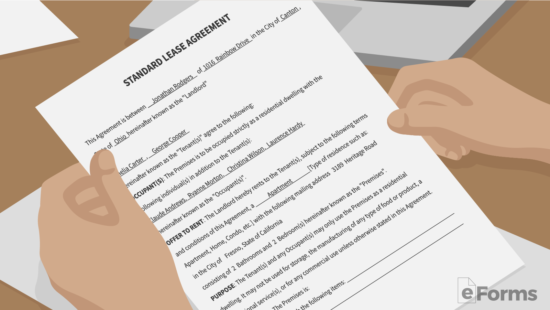
The author should attach any documents needed or required that support the residency claim. It’s always recommended to have the most current and updated documents as possible.
- Bank Statement
- Cell Phone Bill
- Drivers License
- Health Insurance Card
- Residential Lease Agreement
- Mortgage Statement
- Paycheck / Paystub
- Real Estate Deed
- Tax Return (IRS or State)
- Utility Bill (electricity, cable/internet, cell phone, etc.)
- Voter Registration Card
- Vehicle Title / Registration
Commonly, any two (2) of the above-mentioned documents are required.

